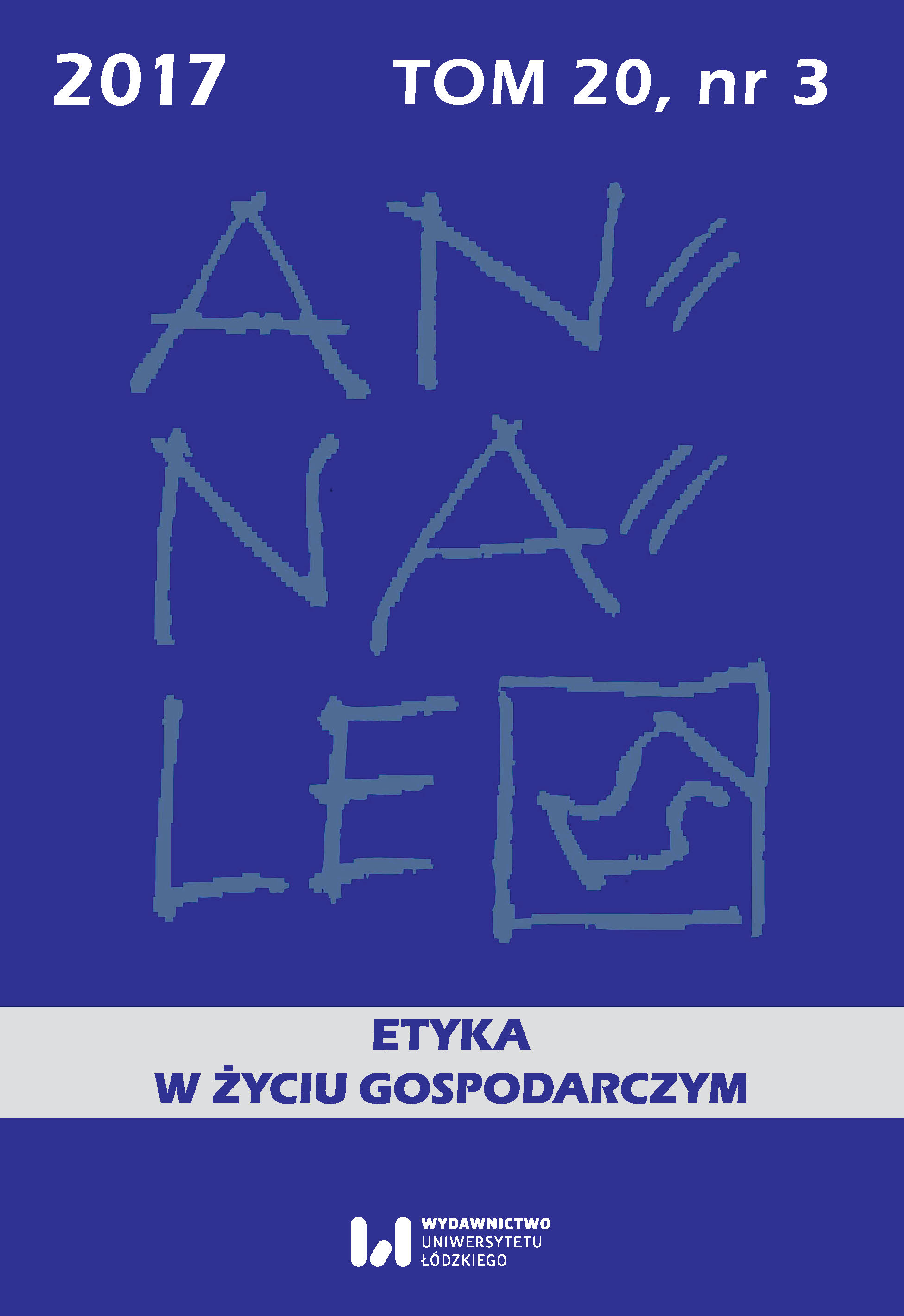Activity of German Sports (Football) Enterprises and Corporate Social Responsibility
DOI:
https://doi.org/10.18778/1899-2226.20.3.09Keywords:
sports enterprises, social market economy' corporate social responsibilityAbstract
At the turn of the 1920s and 1930s a new economic doctrine called ordoliberalism was born in Germany. The foundations of this doctrine were values such as responsibility, solidarity, justice, and freedom. Classics of ordoliberalism formulated a number of recommendations and requirements for businesses in their writings. One of them was the public responsibility, which had the private-economic and socio-economic nature. In Germany sports’ (football) enterprises functioning in the form of companies and associations are participants in the sports-economic competition in the two professional leagues (1. Bundesliga and 2. Bundesliga). At the same time sports enterprises pursue different aims: among the economic goals, there are also the social goals. In the structures of sports enterprises there are several departments dealing with CSR and implementation of partnership projects. The article concludes that 1) the constitutive elements of ordoliberalism had an influence on the functioning of sports (football) enterprises in Germany, 2) the projects realized under the social responsibility rule that were undertaken by sports companies were strongly related to sports education, environmental protection, and social exclusion.
References
Bundesliga Stiftung, Zweite Studie zum freiwilligen gesellschaftlichen engagement des Profifussballs. Saison 2015/2016, Frankfurt am Main 2017, https://www.Bundesliga-stiftung.de/download/file/fid/4606.
Google Scholar
DFB Mitglieder-Statistik 2016, http://www.dfb.de/fileadmin/_dfbdam/113011-Mitgliederstatistik_2016.pdf.
Google Scholar
DFL Report. Die wirtschaftliche Situation im Lizenzfussball, Frankfurt am Main 2017, http://s.bundesliga.de/assets/doc/1120000/1118741_original.pdf.
Google Scholar
Eucken W., Grundsätze der Wirtschaftspolitik, J.C.B. Mohr, Tübingen 1990.
Google Scholar
FC Bayern Magazin. Sonderedition, 2010, nr 13.
Google Scholar
Grabowski A., Przedsiębiorstwa sportowe w gospodarce rynkowej. Na przykładzie FC Bayern Monachium SA, Wydawnictwa Naukowo-Techniczne, Warszawa 2013.
Google Scholar
HSV Stiftung. Der Hamburger Weg, Hamburgs Nachwuchs ist unsere Sache, https://www.hsv.de/fileadmin/user_upload/Bilder_HSV.de/Volksparkstadion/Der_hamburger_Weg/News/Stiftung/Hamburger_Weg_Dokumentation.pdf.
Google Scholar
Lagebericht HSV Fussball AG. Geschäftsjahr 2015/2016, https://hsvcmsroot-v.azureedge.net/fileadmin/user_upload/Bilder_HSV.de/Unser_HSV/Verein/HSV_Fussball_AG/Lagebericht_HSV_Fussball_AG_Geschaeftsjahr_2015_16.pdf.
Google Scholar
Müller-Armack A., Genealogie der Sozialen Marktwirtschaft. Frühschriften und weiterführende Konzepte, Verlag Paul Haupt, Bern–Stuttgart 1981.
Google Scholar
Röpke W., Civitas Humana. Grundfragen der Gesellschafts- und Wirstchaftsreform, Eugen Rentsch Verlag, Erlenbach–Zürich 1949.
Google Scholar
Röpke W., Jenseits von Angebot und Nachfrage, Eugen Rentsch, Erlenbach–Zürich–Stuttgart 1961.
Google Scholar
SC Freiburg – mehr als Fussball. Unser gesellchaftliches Engagement, 2015, https://www.scfreiburg.com/sites/default/files/Broschüre_SC%20Freiburg%20-%20mehr%20als%20Fußball.pdf.
Google Scholar
Werder Bremen, CSR Report 2015, https://www.werder.de/fileadmin/WERDER_BEWEGT/Downloads/CSR-Report2015.pdf.
Google Scholar
VfL Bochum, „Unsere Leitbild”, http://www.vfl-bochum.de/kickit/upload/webseite/verein/Leit bild.pdf.
Google Scholar
VfL Wolfsburg, Der Nachhaltigkeitsbericht 2016, https://www.vfl-wolfsburg.de/fileadmin/user_upload/Bilder/Alle_News/2016/Nachwuchs/VfL_Wolfsburg_CSR_Komplett_eBook_ES_161110.pdf.
Google Scholar
Wywiad dotyczący zaangażowania społecznego Hamburger SV – Marieke Patyna (referent zarządu HSV Fussball AG) z 24 kwietnia 2017 r.
Google Scholar









